- Our Mission
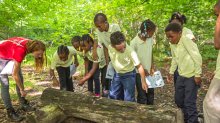

Yes, Field Trips Are Worth the Effort
Culturally enriching trips can boost grades and decrease absences and behavioral infractions, new research reveals.
As a teacher, Elena Aguilar often looked for opportunities to get her students out of the classroom and into different neighborhoods or natural environments. “We did the usual museum trips and science center stuff, but I loved the trips which pushed them into unfamiliar territory,” writes Aguilar , an instructional coach and author. Nudging kids out of their comfort zones, she says, “taught them about others as well as themselves. It helped them see the expansiveness of our world and perhaps inspired them to think about what might be available to them out there.”
Aguilar’s thinking made an impact: 15 years after traveling with her third-grade class to Yosemite National Park, a student contacted Aguilar on Facebook to thank her for the life-changing excursion. “You changed our lives with that trip,” the student wrote. “It's what made me want to be a teacher, to be able to give that same gift to other kids.”
As schools grapple with pandemic-related concerns about balancing in-seat instructional time with non-essentials like trips, new research published in The Journal of Human Resources argues that field trips, and the vital educational experiences that they provide—whether it’s a visit to a local museum or a big commitment like Aguilar’s national park trip—deliver a host of positive social and academic outcomes and are worth the effort.
“The pandemic should not keep schools from providing these essential cultural experiences forever,” asserts Jay P. Greene , one of the study’s co-authors and a senior research fellow at the Heritage Foundation, in an opinion piece for the Daily News . “If schools make culturally-enriching field trips an integral part of the education experience, all students—especially those whose parents have a harder time accessing these experiences on their own—would benefit.”
In the study, researchers assigned more than 1,000 fourth- and fifth-grade students in Atlanta to two groups. One group participated in three to six “culturally-enriching” field trips—visits to an art museum, a live theater performance, and a symphony concert—while students in the control group stayed put in class. The outcome? Kids in the field trip group “scored higher on end-of-grade exams, received higher course grades, were absent less often, and had fewer behavioral infractions,” compared to students in the control group, according to a ScienceDaily brief . Benefits lasted two to three years, Greene writes, and were “most visible when students were in middle school.”
“We are able to demonstrate that a relatively simple intervention—and we consider it pretty low-touch; three field trips in a year, maybe six field trips in two years—can actually have some substantial impacts,” says lead study author Heidi Holmes Erickson in an interview with The 74 . “They’re not just limited to social benefits. It shows that smaller interventions can actually have some significant effects on academics as well.”
Field trips aren’t a threat to in-class instruction, Erickson notes, they’re a tool to help bolster engagement and expand students’ horizons. “It's possible to expose students to a broader world and have a culturally enriching curriculum without sacrificing academic outcomes, and it may actually improve academic outcomes,” Erickson says. Far from harming test scores, the researchers found that culturally rich excursions reinforce academics and “students who participated in these field trips were doing better in class.”
Meanwhile, class trips don't need to be elaborate productions to make an impact: small excursions outside the classroom—"low-touch," as the researchers call them—can pack a punch. Here’s how three educators recommend dialing it back with low-stakes options that are both engaging and stimulating for students, but might not require days to prepare and plan:
Make Them Bite-Sized : Instead of allocating an entire day to a field trip, educational consultant Laurel Schwartz takes her classes on micro field trips , or “short outings that can be completed in a single class period.” These real-world encounters, she says, are especially beneficial for English learners and world language students. A micro field trip to a nearby park or around school grounds, for example, can be a great opportunity to “enhance a unit on nature and wildlife while reinforcing vocabulary for senses, colors, and the concepts of quantity and size,” Schwartz writes. “Afterwards, students might write descriptive stories set in the place you visited using vocabulary collected and defined together by the class.”
Try Teacher-Less Trips : To encourage exploration and learning outside of the classroom, former social studies teacher Arch Grieve removes himself from the equation with teacher-less field trips rooted in students’ local communities. Grieve only suggests options that are directly tied to a unit being discussed in class—like attending a talk at a local university or visiting a museum or cultural festival—and offers extra credit to incentivize students. “These trips allow for a greater appreciation of my subject matter than is possible in the school setting, and perhaps best of all, there's little to no planning involved.”
Explore Virtual Options : It may not be as fun as visiting in person, but the Internet makes it possible to visit museums like The National Gallery of London and The Vatican Museums without leaving the school building. Middle school English teacher Laura Bradley likes to search the Museums for Digital Learning website by topic, keyword, and grade level, to find lessons and activities that meet her unique curricular needs. The site grants access to digitized museum collections, 3D models, audio files, documents, images, and videos.
Field Trips: Pros and Cons
Off-campus excursions can enhance learning, but they pose challenges
- Tips & Strategies
- An Introduction to Teaching
- Policies & Discipline
- Community Involvement
- School Administration
- Technology in the Classroom
- Teaching Adult Learners
- Issues In Education
- Teaching Resources
- Becoming A Teacher
- Assessments & Tests
- Elementary Education
- Secondary Education
- Special Education
- Homeschooling
- M.Ed., Curriculum and Instruction, University of Florida
- B.A., History, University of Florida
Are field trips worth all the time and effort required to make them successful? Most teachers have asked themselves this question at one time or another, typically when feeling overwhelmed as they prepare for a field trip. The truth is that field trips at any grade level can cause quite a few headaches for teachers. At the same time, well-planned field trips can provide students with truly educational experiences they cannot get in the confines of the classroom. Following is a look at the pros and cons of field trips.
Benefits of Field Trips
Field trips provide students with new opportunities for learning through experience:
Different Learning Modalities
Information is presented to students in a way that meets different learning modalities. Field trips provide students with the ability to learn by doing instead of just passively listening to the information being taught in class.
Students are exposed to new experiences that, hopefully, broaden their horizons. This can be especially helpful for students from lower socioeconomic backgrounds who may not have been exposed to these opportunities before.
Reinforcing Concepts
Concepts that have already been learned in the classroom can be reinforced. Sometimes seeing information being taught in a new way can make a big difference in student comprehension. There is quite a difference between being taught about something like hurricanes and wind speed and experiencing them in an exhibit at a science museum.
Shared Reference
Students are provided with shared reference points that teachers can then refer to and use in future lessons. There may be an opportunity to have two or more disciplines use a field trip as an enrichment activity. For example, a trip to an art museum (art) may couple with a timeline for social studies (political systems in place when art was created) or math (measurements) can combine with science in a biosystem (river, beach, and meadow). In this manner, several teachers can then refer to things that students saw and experienced during the field trip for the remainder of the school year.
Increased Student-Teacher Communication
Students and teachers can see each other in a different light, helping to increase communication between them. Some students who might be overlooked in class because they are quiet might really come alive on field trips.
If parents are involved as chaperones, they can feel more connected to the teacher and the lessons being taught. They can get to know the teacher better and understand what teachers deal with daily.
Meeting Standards
Standards in social studies and science require students to have experiences related to concepts in the discipline. In social studies, students are required to take informed action. In science, students need to be exposed to a series of concepts to help them to better understand the world around them. Field trips help teachers meet these objectives.
Problems With Field Trips
Teachers face a number of concerns and challenges when designing field trips that they need to recognize and address before planning a field trip.
Preparation Needed
Field trips take preparation if teachers want to make them meaningful. They have to coordinate locations and transportation. They also need to create an effective lesson plan that they will follow when on the excursion.
Students will be out of the school building for a field trip, which means they will miss other classes—at least in middle and high school. If each core subject area (ELA, math science, or social studies) offers one field trip during a school year, students would be out of the building for four days. School attendance policies may count these as excused absences, but any field trip that removes students from class reduces the number of classroom hours.
Trips Can Be Costly
Field trips can be expensive, and some students may not have the funds to attend. Organizers of the field trip may consider asking for parents to add a few dollars to help students in need. School boosters may need to host a fundraiser for students to raise money for more expensive trips.
Teachers have to organize the collection of money and the assigning of chaperones. Teachers need to spend some time creating student groups that work for all students and ensuring that chaperones are assigned accordingly.
Teachers will likely have to deal with red tape as they plan field trips including permission slips, medical information, and emergency procedures. Schools typically require paperwork from teachers and their students.
Potential Discipline Problems
Students will be placed in a larger environment than the classroom. New surroundings could possibly lead to additional discipline problems. Because teachers typically only lead a small group (such as 30 to 40 students), they may not be able to maintain control over the behavior of every student on the field trip, especially if the group is large. Teachers should go over rules and expectations before the field trip, enforce the rules strictly while away from school grounds, and create effective consequences for misbehavior.
May Be Disappointing
The field trip destination might not live up to the teacher's expectations. The location might not be as interesting as the teacher thought it would be. The time to complete the field trip might be considerably less than was expected. Therefore, it is a good idea to have some contingency plan in mind just in case.
There may be students who, for one reason or another, will not attend the field trip. Teachers must leave lessons, usually enrichment offerings, that mirror some of the concepts being experienced on the field trip.
Requesting Feedback
One of the best ways to measure the success of a field trip (other than returning all students back to the school) is to ask for feedback. Teachers can post a survey for participants and for other chaperones asking them to express how they would evaluate the trip.
Opportunity to Reflect
Students should have the opportunity to reflect on the trip and write a response in a journal or essay. Requiring journal responses after the trip can solidify the information learned as students reflect on their new experiences. Asking students to write a thank you to the school principal for allowing the trip may even smooth the path to additional field trips.
Worth the Difficulties
Many teachers feel that well-chosen field trip destinations are worth the difficulties they may create. The key is taking the time to plan each aspect as much as possible. Teachers should be proactive when thinking about and planning field trips. Students, on the other hand, may remember the experience of the school field trip as a highlight of the school year, and the time they learned more than anything taught in class.
- How to Have a Safe, Fun, and Successful Field Trip
- Pros and Cons of Teaching
- The Pros and Cons of Block Schedules
- What Are Some Pros and Cons of the Common Core State Standards?
- Parents Guide to the Pros and Cons of Homeschooling
- Pros and Cons to Flexible Grouping in Middle and High School
- Whole Group Discussion Pros and Cons
- Job Sharing for Teachers
- 7 Back to School Tips for Teachers
- How to Avoid Common Mistakes When Writing Learning Objectives
- 11 Pros and Cons of Using Movies in Class
- How Scaffolding Instruction Can Improve Comprehension
- 10 Pros and Cons of Being a School Principal
- Methods for Presenting Subject Matter
- The Pros and Cons of Allowing Cell Phones in School
- 7 Ways to Take Control of Your Classroom to Reduce Student Misbehavior
The Enlightened Mindset
Exploring the World of Knowledge and Understanding
Welcome to the world's first fully AI generated website!
The Benefits of Field Trips: Why They Are Important for Education
By Happy Sharer
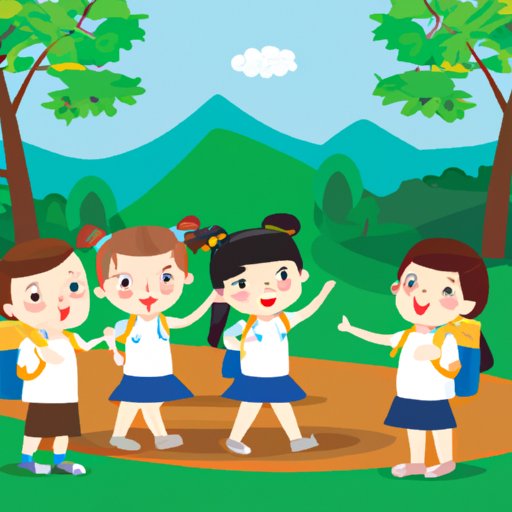
Introduction
Field trips have been a staple of education for centuries. From school trips to museums, historical sites, and outdoor activities, field trips offer students an opportunity to learn in a unique and engaging environment outside of the traditional classroom. Field trips can provide students with invaluable experiences that promote learning, encourage exploration, and inspire creativity. In this article, we will explore why field trips are important and how they can help solve the problem of student engagement.
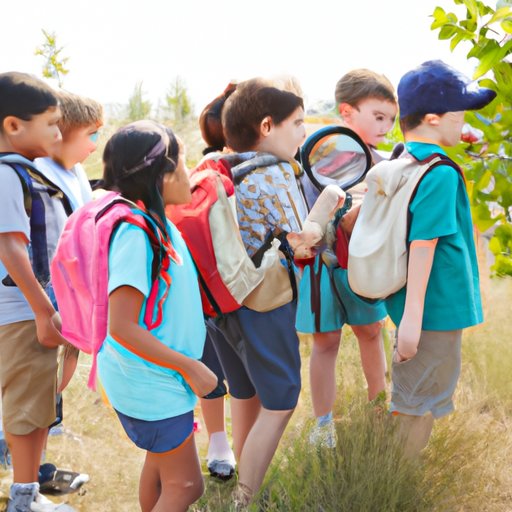
Examining the Educational Benefits of Field Trips
Field trips offer a number of educational benefits that cannot be replicated in a classroom setting. By participating in field trips, students gain hands-on experience, introduce new ideas and perspectives, and enhance their learning through exploration.
Gaining Hands-on Experience
One of the most important benefits of field trips is that they provide students with hands-on experience. By visiting museums, historical sites, and other places of interest, students are able to interact with and explore objects and artifacts that may not be available in their classroom. Through these interactions, students can develop a deeper understanding of the material they are studying and gain a greater appreciation for the topic.
Introducing New Ideas and Perspectives
Another benefit of field trips is that they allow students to be exposed to new ideas and perspectives. By visiting different locations, students can observe the world around them in a way that is not possible in the classroom. This exposure to new environments and cultures can help students better understand the topics they are studying and gain a broader perspective on the world.
Enhancing Learning Through Exploration
Finally, field trips provide students with an opportunity to explore and discover new information. By engaging in activities such as scavenger hunts and interactive exhibits, students can engage in active learning and gain a deeper understanding of the material. This type of exploration encourages critical thinking and creative problem-solving, which can help students become more successful learners.
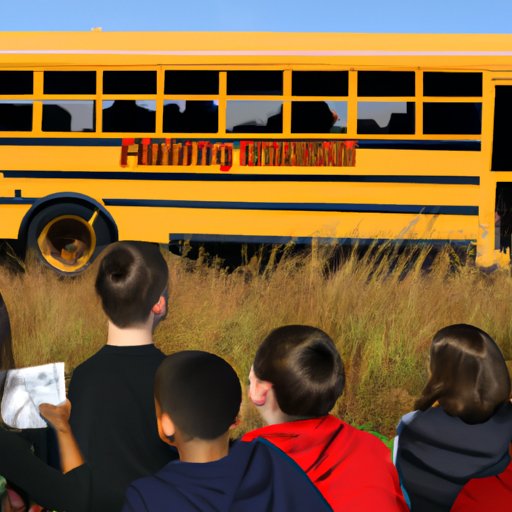
Exploring the Impact of Field Trips on Student Engagement
In addition to providing educational benefits, field trips can also help improve student engagement. By participating in field trips, students can develop motivation, enthusiasm, and a sense of confidence and self-esteem.
Improving Motivation and Enthusiasm
Field trips can help improve student motivation and enthusiasm by providing an engaging and stimulating learning environment. By participating in activities that are both fun and educational, students can become more engaged in their learning and be more likely to take an active role in the classroom.
Developing Social Skills
Field trips can also help students develop social skills. By interacting with their peers in a new environment, students can learn how to communicate and collaborate more effectively. This type of interaction can help students build relationships with their classmates, which can lead to increased engagement in the classroom.
Increasing Confidence and Self-Esteem
Finally, field trips can help increase student confidence and self-esteem. By participating in activities outside of the classroom, students can learn new skills, explore new ideas, and be exposed to new experiences. This type of learning can help students feel more confident in their abilities and be more willing to take risks in the classroom.
Experiencing History Firsthand Through Field Trips
Field trips can also provide students with the opportunity to experience history firsthand. By visiting historical sites and monuments, students can connect classroom lessons to real-world applications and gain a better understanding of historical events.
Connecting Classroom Lessons to Real-World Applications
By visiting historical sites, museums, and monuments, students can learn about the past in a more meaningful way. By seeing the artifacts and hearing firsthand accounts from experts, students can gain a better understanding of the events that shaped the world. This type of learning can help students make connections between what they are learning in the classroom and the real world.
Encouraging Students to Be Curious and Ask Questions
Field trips can also encourage students to be curious and ask questions. By exploring new environments and interacting with experts, students can gain a better understanding of the topics they are studying and be more likely to ask questions and seek out additional information. This type of curiosity can help students become more engaged in their learning and be more likely to take an active role in the classroom.
Understanding Historical Events in a More Meaningful Way
Finally, field trips can help students gain a deeper understanding of historical events. By visiting the places where these events took place, students can gain a better understanding of the people, places, and events that shaped the course of history. This type of learning can help students appreciate the importance of history and gain a greater understanding of the world around them.
Connecting Classroom Learning to Real-World Applications with Field Trips
Field trips can also help bridge the gap between classroom learning and real-world applications. By participating in field trips, students can apply theoretical knowledge to real-life situations, develop problem-solving and critical thinking skills, and build on existing knowledge and explore new topics.
Applying Theoretical Knowledge to Real-Life Situations
By participating in field trips, students can apply the theoretical knowledge they are learning in the classroom to real-life situations. By exploring different environments and interacting with experts, students can gain a better understanding of the topics they are studying and how they can be applied in the real world. This type of learning can help students become better problem-solvers and more effective communicators.
Developing Problem-Solving and Critical Thinking Skills
Field trips can also help students develop problem-solving and critical thinking skills. By engaging in activities such as scavenger hunts and interactive exhibits, students can practice critical thinking and develop strategies for solving complex problems. This type of learning can help students become more successful learners and be better prepared for the challenges of the real world.
Building on Existing Knowledge and Exploring New Topics
Finally, field trips can help students build on existing knowledge and explore new topics. By visiting different locations and engaging in activities, students can gain a deeper understanding of the material they are studying and be exposed to new ideas and perspectives. This type of exploration can help students become more informed citizens and better equipped to handle the challenges of the world.
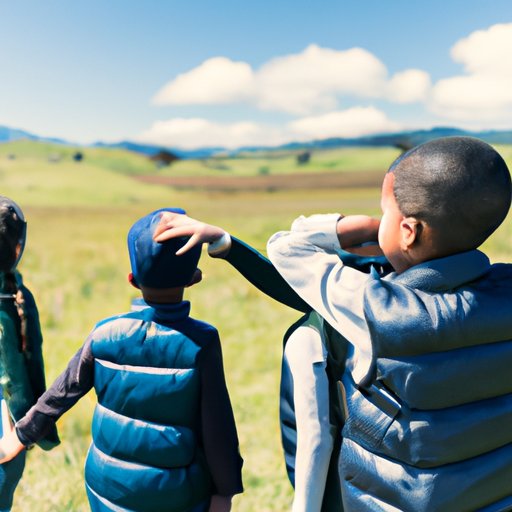
Cultivating Curiosity and Encouraging Exploration through Field Trips
Field trips can also help cultivate curiosity and encourage exploration. By participating in field trips, students can explore their interests, create opportunities for collaboration and teamwork, and be encouraged to think creatively and innovatively.
Allowing Students to Explore Their Interests
Field trips can provide students with the opportunity to explore their interests. By visiting different locations, students can gain a better understanding of the topics they are studying and be exposed to new ideas and perspectives. This type of exploration can help students become more informed citizens and better equipped to handle the challenges of the world.
Creating Opportunities for Collaboration and Teamwork
Field trips can also create opportunities for collaboration and teamwork. By participating in activities together, students can develop communication and collaboration skills that can help them in the classroom and beyond. This type of interaction can help students build relationships with their classmates, which can lead to increased engagement in the classroom.
Encouraging Creativity and Innovation
Finally, field trips can encourage creativity and innovation. By exploring new environments and interacting with experts, students can gain a better understanding of the topics they are studying and be inspired to think critically and creatively. This type of learning can help students become more successful learners and be better prepared for the challenges of the real world.
Understanding the Role of Field Trips in Social Development
In addition to providing educational benefits, field trips can also play an important role in social development. By participating in field trips, students can develop social awareness and empathy, strengthen communication and collaboration skills, and promote respect for diversity and cultural differences.
Developing Social Awareness and Empathy
Field trips can help students develop social awareness and empathy. By visiting different locations and interacting with peers and experts, students can gain a better understanding of the world around them and learn to appreciate the perspectives of others. This type of learning can help students become more empathetic and understanding citizens.
Strengthening Communication and Collaboration Skills
Field trips can also help students strengthen their communication and collaboration skills. By participating in activities together, students can learn how to work together more effectively and develop the skills needed to succeed in the classroom and beyond. This type of interaction can help students build relationships with their classmates, which can lead to increased engagement in the classroom.
Promoting Respect for Diversity and Cultural Differences
Finally, field trips can help promote respect for diversity and cultural differences. By visiting different locations and interacting with peers and experts, students can gain a better understanding of the world around them and learn to appreciate the perspectives of others. This type of learning can help students become more accepting of cultural differences and promote understanding and respect among their peers.
Field trips are an important part of education, offering students hands-on experience, introducing new perspectives, and improving student engagement. Field trips can also help students gain a better understanding of the topics they are studying, develop problem-solving and critical thinking skills, and cultivate curiosity and exploration. Finally, field trips can help students develop social awareness and empathy, strengthen communication and collaboration skills, and promote respect for diversity and cultural differences. For all these reasons, it is essential that field trips remain a priority in education.
(Note: Is this article not meeting your expectations? Do you have knowledge or insights to share? Unlock new opportunities and expand your reach by joining our authors team. Click Registration to join us and share your expertise with our readers.)
Hi, I'm Happy Sharer and I love sharing interesting and useful knowledge with others. I have a passion for learning and enjoy explaining complex concepts in a simple way.
Related Post
Exploring japan: a comprehensive guide for your memorable journey, your ultimate guide to packing for a perfect trip to hawaii, the ultimate packing checklist: essentials for a week-long work trip, leave a reply cancel reply.
Your email address will not be published. Required fields are marked *
Expert Guide: Removing Gel Nail Polish at Home Safely
Trading crypto in bull and bear markets: a comprehensive examination of the differences, making croatia travel arrangements, make their day extra special: celebrate with a customized cake.
- 1.1 Alternative forms
- 1.2.1 Related terms
- 1.2.2 Translations
- 1.3 Further reading
English [ edit ]
Alternative forms [ edit ], noun [ edit ].
field trip ( plural field trips )
- 2013 , Eileen M. Jones, Letters From Nigeria: Experiences of a Peace Corps Volunteer , page 94 : As I wrote we have a field trip scheduled (starting in about 1 hour to be exact since it's now 6 AM). We will take 72 of the second years to the coal mines, asbestos factory, steel mills in Enugu then up to Nnsuka.
Related terms [ edit ]
Translations [ edit ], further reading [ edit ].
- “ field trip ”, in OneLook Dictionary Search .
- English lemmas
- English nouns
- English countable nouns
- English multiword terms
- English terms with quotations
- en:Education
- Quotation templates to be cleaned
- Mandarin terms with non-redundant manual transliterations
- Requests for translations into Korean
- Russian terms with redundant script codes
Navigation menu
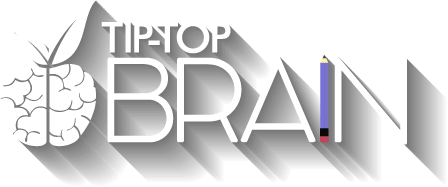
- About Tip-Top Brain
- Back To School
- Middle School
- Our Programs
- Special Education
- Testing & Test Prep
- Virtual Learning
- Personalized Tutoring
- Private Tutoring
- Homework Help
- Essay Writing Help
- March 9, 2022
- Childhood Education News
The 4 Big Benefits of Field Trips for Kids
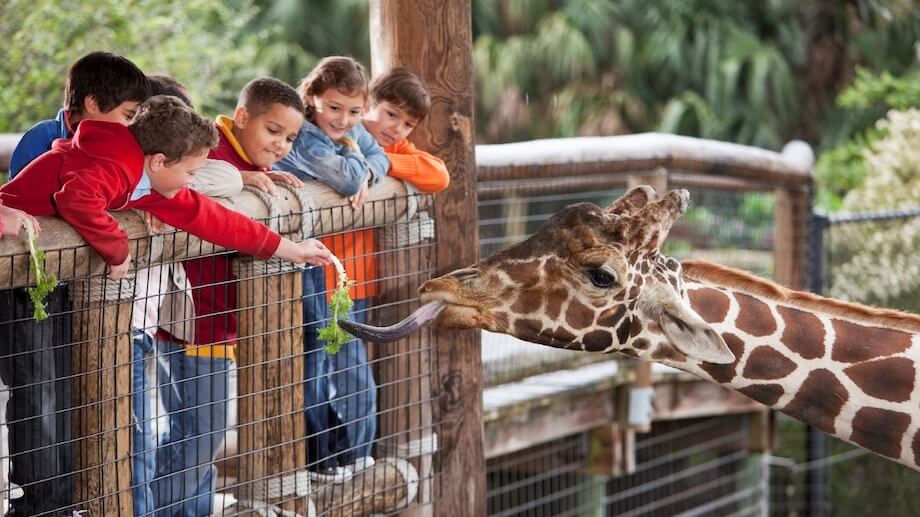

Share This Post
When thinking back to my childhood days, there is nothing more vivid than my memories of school field trips. Field trips ranging from museums, zoos, animal farms, and the pumpkin patch all come to mind. Many of us have had the privilege of experiencing the benefits of field trips firsthand. We must understand that field trips are amazing tools to extend the classroom to the real world. As educators and parents, we can take advantage of the benefits of field trips to more effectively promote real-world learning, social-emotional development, and academic success. The benefits of field trips in early and childhood education can be tremendous!
1. Field Trips and Real-World Learning
Children are active learners as they are constantly making connections with the world around them. With an innate drive to learn and explore, field trips are the perfect way for children to learn outside of a typical classroom setting.
Before a trip, prepare your students for the unique environment. Allow students to prepare themselves by informing them of where they will be going, what they will do, the things they will see, proper clothing, and appropriate behavior. If “there will be live animals, discuss the importance of soft touch if handling is allowed. If they will be taking a hike through a hilly or wet location, talk about fear of heights or getting their feet wet.” To promote real-world learning be sure to make connections to the curriculum. It is important to emphasize the purpose and intent of the field trip. This way students will be prepared, excited, and hungry to learn more!
2. Benefits of Field Trips Include Social-Emotional Development
While the push for academics in early and childhood education has created a decline in field trips, we must understand that field trips play a massive role in social-emotional development. Field trips allow students to collaborate with their peers, explore new environments, make connections, problem solve, develop trust, and empathy. Unfortunately, we have seen field trips being used as a positive reinforcement for good behavior instead of being used as a tool to enhance social-emotional development.
3. Field Trips Boost Academic Success
Field trips are both fun and memorable ways to promote academic success. One study indicates that “regardless of gender, ethnicity or socioeconomic status, youth who take educational trips have better grades because the trips made them more engaged, intellectually curious.” With culturally enriching field trips, students can make connections to other educational fields, gain first-hand experiences, and understand concepts on a deeper level.
Students benefit as they participate in unique experiences that build on their learning. Most importantly, field trips pique the interest of young-learners, a key factor in childrens’ motivation to learn, inspiring students to engage with concepts in ways that are relevant and meaningful. Field trips reinforce topics and ideas learned in the classroom. To further promote academic success, educators can provide both pre-trip and follow-up instruction!
4. Virtual Field Trips Boost Learning Too
Virtual field trips are terrific ways to implement interactive technology in your child’s life! Virtual field trips can range from an online experience to the zoo, aquarium, animal farm, pumpkin patch, rainforests, etc.! Virtual field trips are viable options for many as they can be more accessible for families and educators! For more accessible options, consider walking around your neighborhood, visiting local shops, or even going to your neighborhood park. Virtual field trips are amazing as they allow children to explore with technology in ways that are interactive!
Awesome Field Trips for Kids
- The Drawing Center
- Brooklyn Childrens Museum
- Environmental Study Center
- New York Aquarium
- American Museum of Natural History
- Childrens Museum of the Arts
- New York Hall of Science
- Queens County Farm Museum
- Queens Botanical Garden
- Virtual Field Trips
All in all, the benefits of field trips are undoubtedly tremendous as they promote real-world learning, social-emotional development, and academic success. We must continue to support our educators and advocate for meaningful experiences. Our children deserve opportunities to explore and make meaning outside of the classroom too. Do not forget to document your amazing field trips to look back on!
Join Our Community
Subscribe to Our Blog for the Latest Updates and Insights!
More To Explore

How to Find a High School Internship (That Are A Perfect Fit!)

The Bill Set to Shrink NYC Class Sizes

2 Best Practices to Create a Loving Environment for Kids
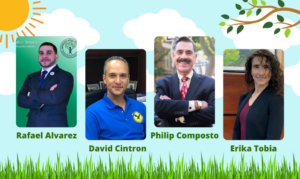
Meet the D30 Superintendent Candidates
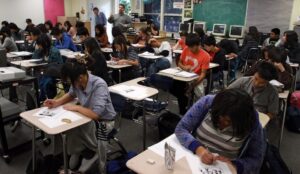
NYC Class Sizes 101: The Great Debate
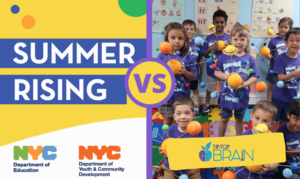
Our Summer STEAM Camp Vs. NYC Summer Rising
(718) 440-3541
2171 Steinway St. Astoria, NY
Tip-Top Brain empowers students to unlock their potential through quality education, positive learning environment, and dedicated instructors.
Useful Links
Blogs & articles.

Our Newsletter
Subscribe to our newsletter to stay informed and receive valuable parenting tips.
- Terms & Conditions
Please complete this form and our program coordinator will reach out to you shortly.
We're committed to your privacy. Tip-Top Brain uses the information you provide to us to contact you about our relevant content and services. You may unsubscribe from these communications at any time.
Meaning of "field trip" in the English dictionary
Pronunciation of field trip, grammatical category of field trip, what does field trip mean in english, definition of field trip in the english dictionary.
The definition of field trip in the dictionary is an expedition, as by a group of students or research workers, to study something at first hand.
WORDS THAT BEGIN LIKE FIELD TRIP
Words that end like field trip, synonyms and antonyms of field trip in the english dictionary of synonyms, words relating to «field trip», translation of «field trip» into 25 languages.

TRANSLATION OF FIELD TRIP
Translator english - chinese, translator english - spanish, translator english - hindi, translator english - arabic, translator english - russian, translator english - portuguese, translator english - bengali, translator english - french, translator english - malay, translator english - german, translator english - japanese, translator english - korean, translator english - javanese, translator english - vietnamese, translator english - tamil, translator english - marathi, translator english - turkish, translator english - italian, translator english - polish, translator english - ukrainian, translator english - romanian, translator english - greek, translator english - afrikaans, translator english - swedish, translator english - norwegian, trends of use of field trip, tendencies of use of the term «field trip».

FREQUENCY OF USE OF THE TERM «FIELD TRIP» OVER TIME
Examples of use in the english literature, quotes and news about field trip, 2 quotes with «field trip», 10 english books relating to «field trip», 10 news items which include the term «field trip».
- ABBREVIATIONS
- BIOGRAPHIES
- CALCULATORS
- CONVERSIONS
- DEFINITIONS

Vocabulary
What does field trip mean?
Definitions for field trip field trip, this dictionary definitions page includes all the possible meanings, example usage and translations of the word field trip ., princeton's wordnet rate this definition: 0.0 / 0 votes.
- field trip noun
a group excursion (to a museum or the woods or some historic place) for firsthand examination
Wiktionary Rate this definition: 0.0 / 0 votes
A trip into the field.
An educational trip.
Wikipedia Rate this definition: 0.0 / 0 votes
A field trip or excursion is a journey by a group of people to a place away from their normal environment. When done for students, as it happens in several school systems, it is also known as school trip in the UK, Australia, New Zealand and Bangladesh, and school tour in Ireland. A 2022 study, which used randomized controlled trial data, found that culturally enriching field trips led students to show a greater interest in arts, greater tolerance for people with different views, and boosted their educational outcomes.
ChatGPT Rate this definition: 0.0 / 0 votes
A field trip is an excursion or journey planned and taken by a group, especially students or researchers, to gain hands-on experience, observe, investigate, or learn about things related to their course of study or area of interest, outside their regular educational or work environment. This could include visits to geographical locations, museums, businesses, science labs, theaters, or educational institutions.
Wikidata Rate this definition: 4.5 / 2 votes
A field trip or excursion, known as school trip in the UK and New Zealand and school tour in Ireland, is a journey by a group of people to a place away from their normal environment. The purpose of the trip is usually observation for education, non-experimental research or to provide students with experiences outside their everyday activities, such as going camping with teachers and their classmates. The aim of this research is to observe the subject in its natural state and possibly collect samples. In western culture people first come across this method during school years when classes are taken on school trips to visit a geological or geographical feature of the landscape, for example. Much of the early research into the natural sciences was of this form. Charles Darwin is an important example of someone who has contributed to science through the use of field trips. It is generally for students in grades K-12 and college. Field trips are generally domestic, but for high school students, it becomes international. To mitigate these risks and expenses, most school systems now have formalized field trip procedures that considers the entire trip from estimation, approval and scheduling through planning the actual trip and post-trip activities.
Matched Categories
How to pronounce field trip.
Alex US English David US English Mark US English Daniel British Libby British Mia British Karen Australian Hayley Australian Natasha Australian Veena Indian Priya Indian Neerja Indian Zira US English Oliver British Wendy British Fred US English Tessa South African
How to say field trip in sign language?
Chaldean Numerology
The numerical value of field trip in Chaldean Numerology is: 9
Pythagorean Numerology
The numerical value of field trip in Pythagorean Numerology is: 9
Examples of field trip in a Sentence
George GascónThe DA :
If you are the mom or dad who wants to participate in the kids' school activities and they're being told you can't go to that field trip because you have a felony conviction because you sold a nickel bag in the Tenderloin 10 years ago, that's the people that we care about, this partnership also helps to address wrongs caused by the failed war on drugs, felt most strongly by communities of color.
Bob Mosier :
So, many of you might be asking yourselves, ‘So I’m at an overnight field trip , and I have a student who’s biologically a male, identifies as a female, and we’ve worked with that student and her family, and that student wants to sleep in the dorms, or whatever sleeping arrangements are, with the females,’ they don’t want to sleep in a room by themselves; they want to sleep with the rest of the females. So what do we do? And the answer is, they sleep with the females…That’s not the easy answer; it’s the right answer. And in some cases, it’s going to cause issues, because … the private information piece doesn’t allow you to share that with parents of all of the other campers.
Darla Neal :
If you have a very overprotective parent, which would be myself, your children don't get to lead a normal life -- get on a bus, go on a field trip , stay the night with a friend. And that's been very difficult, it's been a life of hard work, trying to be normal.
Bonnie Fritch :
We mapped out the travels of the canoe through the Great Lakes, a friend of Brenda's made the boats for us and our classes painted Brenda Schell and added the message to the bottom. On our end of the year field trip for our Duluth unit we stopped at Brighton Beach to launch the boats.
World War II :
Central to the Field Trip ’s discussion is an examination of how throughout World War II, African Americans pursued a double victory – one over the Axis abroad and the other over discrimination at home, major cultural, social and economic shifts amid a global conflict were changing American lives.
- ^ Princeton's WordNet http://wordnetweb.princeton.edu/perl/webwn?s=field trip
- ^ Wiktionary https://en.wiktionary.org/wiki/Field_Trip
- ^ Wikipedia https://en.wikipedia.org/wiki/Field_Trip
- ^ ChatGPT https://chat.openai.com
- ^ Wikidata https://www.wikidata.org/w/index.php?search=field trip
Word of the Day
Would you like us to send you a free new word definition delivered to your inbox daily.
Please enter your email address:
Citation
Use the citation below to add this definition to your bibliography:.
Style: MLA Chicago APA
"field trip." Definitions.net. STANDS4 LLC, 2024. Web. 25 Apr. 2024. < https://www.definitions.net/definition/field+trip >.
Discuss these field trip definitions with the community:
Report Comment
We're doing our best to make sure our content is useful, accurate and safe. If by any chance you spot an inappropriate comment while navigating through our website please use this form to let us know, and we'll take care of it shortly.
You need to be logged in to favorite .
Create a new account.
Your name: * Required
Your email address: * Required
Pick a user name: * Required
Username: * Required
Password: * Required
Forgot your password? Retrieve it
Are we missing a good definition for field trip ? Don't keep it to yourself...
Image credit, the web's largest resource for, definitions & translations, a member of the stands4 network, image or illustration of.

Free, no signup required :
Add to chrome, add to firefox, browse definitions.net, are you a words master, any of a class of organic compounds containing the cyano radical -cn, Nearby & related entries:.
- field theory noun
- field thistle noun
- field training exercise
- field training officer
- field trial noun
- field winding noun
- field work noun
- field worker
Alternative searches for field trip :
- Search for field trip on Amazon

- Biographical
- More from M-W
- To save this word, you'll need to log in. Log In
Definition of field
(Entry 1 of 3)
Definition of field (Entry 2 of 3)
Definition of field (Entry 3 of 3)
transitive verb
intransitive verb
- contend (with)
- cope (with)
- grapple (with)
Examples of field in a Sentence
These examples are programmatically compiled from various online sources to illustrate current usage of the word 'field.' Any opinions expressed in the examples do not represent those of Merriam-Webster or its editors. Send us feedback about these examples.
Word History
Noun, Adjective, and Verb
Middle English, from Old English feld ; akin to Old High German feld field, Old English flōr floor — more at floor
before the 12th century, in the meaning defined at sense 1a(1)
before the 12th century, in the meaning defined above
1798, in the meaning defined at transitive sense 1a
Phrases Containing field
- broken - field
- center field
- color - field
- come out of left field
- dark - field microscope
- depth of field
- electric field
- field artillery
- field - effect transistor
- field event
- field glass
- field grade
- field guide
- field hockey
- field house
- field judge
- field magnet
- field marshal
- field mouse
- field mushroom
- field of battle
- field officer
- field of force
- field of honor
- field of play
- field of view
- field of vision
- field spaniel
- field - test
- field theory
- field trial
- field winding
- force field
- from the field
- have a field day
- Higgs field
- killing field
- landing field
- lead the pack / field
- level playing field
- level the playing field
- magnetic field
- near field communication
- out in left field
- playing field
- play the field
- potter's field
- quantum field theory
- reverse field
- reverse one's field
- right field
- stay / keep ahead of the field
- take the field
- track - and - field
- vector field
- visual field
Articles Related to field

10 Words For Getting In Shape
Before you hit the gym, hit the books
Dictionary Entries Near field
Cite this entry.
“Field.” Merriam-Webster.com Dictionary , Merriam-Webster, https://www.merriam-webster.com/dictionary/field. Accessed 25 Apr. 2024.
Kids Definition
Kids definition of field.
Kids Definition of field (Entry 2 of 3)
Kids Definition of field (Entry 3 of 3)
Medical Definition
Medical definition of field, biographical definition, biographical name (1), definition of field, biographical name (2).
Definition of Field (Entry 2 of 3)
biographical name (3)
Definition of Field (Entry 3 of 3)
More from Merriam-Webster on field
Nglish: Translation of field for Spanish Speakers
Britannica English: Translation of field for Arabic Speakers
Subscribe to America's largest dictionary and get thousands more definitions and advanced search—ad free!

Can you solve 4 words at once?
Word of the day, tendentious.
See Definitions and Examples »
Get Word of the Day daily email!
Popular in Grammar & Usage
More commonly misspelled words, commonly misspelled words, how to use em dashes (—), en dashes (–) , and hyphens (-), absent letters that are heard anyway, how to use accents and diacritical marks, popular in wordplay, the words of the week - apr. 19, 10 words from taylor swift songs (merriam's version), 9 superb owl words, 10 words for lesser-known games and sports, your favorite band is in the dictionary, games & quizzes.


IMAGES
VIDEO
COMMENTS
A field trip, by definition, is a school-sanctioned excursion away from the classroom and other traditional study environments, to observe, interact with different settings, conducting basic research (what is empirical research?), and/or experiencing new activities not readily found in school (Behrendt & Franklin, 2014). It is a form of ...
A micro field trip to a nearby park or around school grounds, for example, can be a great opportunity to "enhance a unit on nature and wildlife while reinforcing vocabulary for senses, colors, and the concepts of quantity and size," Schwartz writes. "Afterwards, students might write descriptive stories set in the place you visited using ...
A field trip, which may also be termed as an instructional trip, school excursion, or school journey, is defined by Krepel and Duvall (1981) to be a school or class trip with an educational intent, in which students interact with the setting, displays, and exhibits to gain an experiential
Different Learning Modalities. Information is presented to students in a way that meets different learning modalities. Field trips provide students with the ability to learn by doing instead of just passively listening to the information being taught in class. Students are exposed to new experiences that, hopefully, broaden their horizons.
have relatively little rigorous evidence about how field trips affect students. The research presented here is the first large-scale randomized-control trial designed to measure what students learn from school tours of an art museum. We find that students learn quite a lot. In particular, enriching field trips contribute to the development of stu -
A substantial body of research on field trips has accumulated over the past 30 years, much of which has attempted to identify whether and to what degree field trips contribute to school-based instruction and learning, the factors that may contribute to such learning, and, to a lesser degree, the kinds of learning outcomes that can result from these experiences.
Academic Impact. Field based learning increases test scores. A recent study by Emilyn Ruble Whitesell showed that middle school students who participate in science field trips through the Urban Advantage program score better on the state science test. Field trips and hands on learning make concepts more memorable. Just think back to what you learned in school, the field trips you took, and ...
Educational field trips are excellent ways to deliver academic content and are particularly impactful for students from rural, high-poverty, and minoritized populations (Greene et al., 2014). The ...
"A field trip, by definition, is any journey taken under the auspices of the school for educational purposes" (Sorrentino and Bell, 1970). Generally, students are taken from the traditional learning environment (the classroom) to another location, usually on a non-routine basis, for a specific learning
Plan Your Schedule. Arrange Your Supervision. Create a Permission Form. Decide Who's Allowed To Go. Tie in Your Field Trip to Your Curriculum. These are the steps you will need to cover for your field trip plan. The order of these steps may be different for you, but be sure to think about all of these points. 1.
Increasing Confidence and Self-Esteem. Finally, field trips can help increase student confidence and self-esteem. By participating in activities outside of the classroom, students can learn new skills, explore new ideas, and be exposed to new experiences. This type of learning can help students feel more confident in their abilities and be more ...
classroom, or "in the field," can be considered a field trip, though that definition is very broad. It may be part of a day, a day long or longer. It can be a simple guided tour to an area of interest or it may include conducting active research-oriented field projects. But when a field trip merely
Noun [ edit] field trip (plural field trips) A trip, usually in a group and especially by students, to a place of special interest for education, research or exploration; a trip into the field . 2013, Eileen M. Jones, Letters From Nigeria: Experiences of a Peace Corps Volunteer, page 94:
For "trip" definition 1, "excursion" could also be used, provided the trip is short enough. ... Short excursions for education or for observations of natural phenomena are called field trips. One-day educational field studies are often made by classes as extracurricular exercises, e.g. to visit a natural or geographical feature. ...
field trip in. Education topic. From Longman Dictionary of Contemporary English ˈfield trip noun [ countable] an occasion when students go somewhere to learn about a particular subject, especially one connected with nature or science a geography field trip Examples from the Corpus field trip • They are completely without inhibition, a bus ...
Field trips allow students to collaborate with their peers, explore new environments, make connections, problem solve, develop trust, and empathy. Unfortunately, we have seen field trips being used as a positive reinforcement for good behavior instead of being used as a tool to enhance social-emotional development. 3.
The meaning of field trip. Definition of field trip. English dictionary and integrated thesaurus for learners, writers, teachers, and students with advanced, intermediate, and beginner levels. ... field trip pronunciation: fild trIp. part of speech: noun: definition: a trip away from class by a group of students to learn or gain experience ...
Synonyms for FIELD TRIP: excursion, visit, stay, outing, sojourn, tarry, layover, stopover, homestay, sleepover. Games & Quizzes; Games & Quizzes; Word of the Day; Grammar; Wordplay; Word Finder ... Definition of field trip. as in excursion. a trip to a place (such as a museum or zoo) ...
Field trip. A field trip or excursion, known as school trip in the UK, New Zealand, Philippines and school tour in Ireland, is a journey by a group of people to a place away from their normal environment. The purpose of the trip is usually observation for education, non-experimental research or to provide students with experiences outside their ...
Field trips synonyms, Field trips pronunciation, Field trips translation, English dictionary definition of Field trips. n. A group excursion for the purpose of firsthand observation, as to a museum, the woods, or a historic place.
Meaning of field trip. What does field trip mean? Information and translations of field trip in the most comprehensive dictionary definitions resource on the web. Login . The STANDS4 Network. ABBREVIATIONS; ... Find a translation for the field trip definition in other languages: Select another language: - Select - 简体中文 (Chinese ...
field: [noun] an open land area free of woods and buildings. an area of land marked by the presence of particular objects or features. an area of cleared enclosed land used for cultivation or pasture. land containing a natural resource. airfield. a large unbroken expanse (as of ice).
learning in the classroom. rote memorization. studying at school. studying in the classroom. textbook-based learning. traditional learning. abide. crawl. day trip.